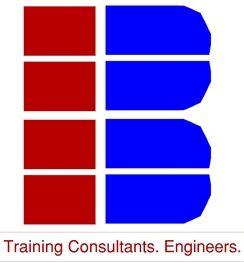COST ENGINEERING AND FINANCIAL ANALYSIS
With the use of Excel Solver and Tools
About the Course
The course will help to develop the professional skills and competences to be a successful cost estimator, planner and cost controller in a wide range of project types. Therefore, the course will be very instructive and valuable for a broad range of engineers working in many different areas related to project costs.
Wasser and Bau is offering this training as part of its human capacity building in developing Infrastructure engineers within the Nigerian Society of Engineers
Who Should Attend
Engineers, Surveyors, Land Planners & Developers interested in highway design, land development and planning. This is an excellent class for new engineers, graduate trainees; Old engineers who require extended knowledge of Computer Aided Design and anyone who plans on use the Civil 3D work environment should attend this class.
Learning Objectives
1. Basic of Cost Engineering
2. Elements/Types of Cost
3. Economic Cost Analysis & Investment Appraisals using Excel Financial Tools (Templates available)
4. Cost Planning, Escalation & Inflation
5. Cost Estimation & Budgeting
6. Cost Optimization & Value Engineering using Solver
7. Cost Sensitivity Analysis using Goal Seek, Secanio Manager and Data Table
8. Cost Risk Analysis & Simulation using Monte Carlo
9. Project Cost Control/EVM with controlling template
10. Cost Depreciation & Amortization using SL, DDM, SOYD with Templates
11. Emerging Reporting Tools in Cost Engineering (pivot charts, scorecards, KPIs, Dashboard)
Course Outline
MODULE 1: Basics of Cost Engineering
· Introduction to Cost Engineering
· Cost Elements
· Materials (Direct and indirect cost)
· Labour (Direct and indirect cost)
· Equipment Parts, and Tools (Purchase and Selling costs)
· prime costs and Incremental Costs
· Economic costs and opportunity costs
· Fixed, Variable, Average and Marginal Costs
· Reoccurring & Nonrecurring Costs
· Sunk Costs and Overhead Cost
· Application of EXCEL Tools
MODULE 2: Business Financial Cost Analysis/Investment Appraisals
· Present value
· Future value and equivalence
· OPEX / CAPEX Projects
· Internal rate of return
· Net present value
· Payback Period
· Break even analysis
· Cost benefit analysis
· Profitability Index
· Return on Investment
· Cost optimization
Training Dates:
7 – 9 October 2021
Venue:
Online Via Zoom
https://us02web.zoom.us/meeting/register/tZYpf-igqDItGtN-t3ExrmKhEr7-BNgf0cUy
Time: 10am – 4pm
Cost
Cost fee is Twenty –five thousand (₦25,000)The Fee covers Software, Workshop Materials, videos, Certificate of Participation, .
Payment and Registration
Name: Wasser & Bau
Account No: 0006365809
Bank: Stanbic IBTC Bank
Enquiries
Further Inquiries: send SMS to 08140439427 or email info@wasser-bau.com.
Visit www.wasser-bau.com for further details
